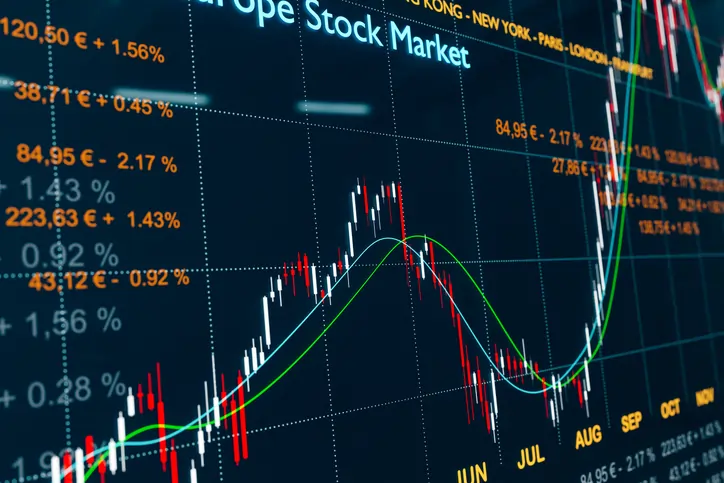Regarding mergers and acquisitions (M&A), private equity continues to show robust interest in acquiring lower middle market (LMM) companies. While large M&A transaction volume fell in the first half of 2024, the allure of LMM acquisitions remains high. This trend is being driven by several factors that make these companies particularly attractive to investors, including relatively low costs, high potential upside, and business agility.
Dena Jalbert, CEO of Align Business Advisory Services, one of the leading M&A advisors in the lower middle market, noted the robust appetite from private equity.
Jalbert said, “We’re seeing increased interest in LMM companies, though not necessarily a strong preference over larger companies. PE firms are diversifying their portfolios, and many see LMM as an attractive segment that can help them achieve that goal. The lower purchase prices allow firms to make multiple acquisitions and spread risk.”
Jalbert also shed light on several factors driving demand for LMM companies, including the following:
An Abundance of Dry Powder
One of the primary drivers of PE interest in LMM companies is the sheer amount of capital available, often referred to as “dry powder.” PE firms have amassed significant funds that need to be invested. LMM companies offer a compelling opportunity for these investments, allowing PE firms to put their capital to work efficiently.
Investors expect PE firms to be proactive with their funds. In other words, they cannot simply sit on their hands and wait for conditions to improve. Instead, they must strategically use their available capital to acquire companies with relatively low risk and high upside.
Less Competition and Greater Potential for Value Creation
The LMM space faces less competition, making it easier for PE firms to land favorable deals. LMMs don’t have as many potential suitors, either, which means stakeholders may be more apt to jump at any reasonable offer that comes their way. PE firms, in turn, benefit because they can avoid the intense bidding wars often seen in larger transactions.
LMM companies also have greater potential for operational improvements and value creation. PE firms can implement their expertise in management, process optimization, and scaling operations to unlock significant value. Additionally, PE firms find the opportunity for buy-and-build strategies appealing. They can acquire a platform company and then make additional acquisitions to bolster its market position and capabilities.
More Reasonable Valuations
Valuations in the LMM space tend to be more reasonable compared to those of larger companies, making these investments more financially attractive. The lower purchase price allows firms to make multiple acquisitions and spread risk rather than pouring too much capital into a single company.
On this subject, Jalbert said, “LMM valuations tend to be more stable and less affected by multiple compression than large-cap companies.” She further elaborated that the degree of compression varies significantly by “sector and company quality.”
Impact of Higher Borrowing Costs
The current economic environment is characterized by higher borrowing costs, which have had a mixed effect. PE firms with strong cash positions aggressively seek opportunities while their competitors struggle with financing. Cash-strapped entities may struggle to complete certain deals due to the higher cost of borrowing.
The current climate has provided well-capitalized firms with a competitive edge. They can continue to pursue M&A deals and diversify their portfolios, while other entities may struggle to close deals due to funding issues.
Stability Amidst Market Fluctuations
One of the most notable advantages of the LMM space is stability. Larger cap companies often experience multiple compressions, whereas LMM valuations are much more stable.
However, LMMs are not immune to compression. And that’s a factor that PE firms must be aware of during the due diligence period. Company quality and industry will directly impact overall stability, with certain sectors being far more volatile than others.
Sectors Attracting PE Interest
Jalbert has observed that LMM companies in a few key sectors are attracting the most interest from PE firms. These industries tend to be more resilient to economic cycles while also experiencing clear growth:
Healthcare Services and Technology
According to McKinsey & Company, the healthcare market will experience a compound annual growth rate (CAGR) of 7% through 2027. Both the technology and services sides of the industry are projected to grow over the next three years, with healthcare profit pools reaching a valuation of $819 billion.
Home Services
The home services sector includes all businesses that provide repairs, maintenance, improvements, design solutions, and installations. While the current economic climate may decrease demand for optional home services (like pool installations), necessities like roofing, plumbing, and appliance installation remain stable.
Software and Tech-Enabled Businesses
Businesses in the tech space often provide steady cash flow and growth opportunities. LMM companies that rely on recurring revenue models (i.e., subscription-based offerings) are particularly appealing to PE firms.
Industrial Services and Speciality Manufacturing
These sectors both offer unique value propositions and opportunities for operational enhancements. PE firms can use these acquisitions to expand the capabilities of other investments, increasing their value.
Consumer Products With Strong E-Commerce Presence
Consumer goods continue to experience demand and profit growth. Brands with a strong e-commerce presence are especially well-positioned to hit growth targets. According to Statista, the e-commerce market will experience a CAGR of 9.49% through 2029.
Will the LMM Rush Continue?
The consistently strong interest of PE firms in LMM companies underscores the strategic value LMMs offer. PE firms are diversifying their portfolios and see LMMs as attractive segments to help them achieve that goal. The current landscape provides a favorable environment for LMMs seeking exits or investment opportunities.

